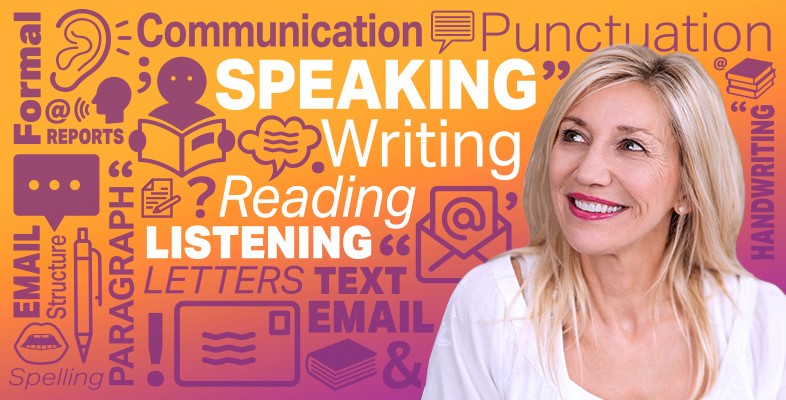2.3 Being informal
Generally you tend to be more informal with people that you know, in places where you feel comfortable.
It is not just language that tells you when a discussion is informal. Body language is also part of this. For example, if someone has their feet on the table it is not likely to be a formal situation. We keep coming back to body language so it seems right that you will look at non-verbal communication in more detail in the next section.
A Functional Skills English Level 1 or an Essential Skills Wales Communication Level 1 formal discussion won’t be like an overly formal business meeting. Likewise, a Functional Skills English informal discussion should not be as informal as friendly banter in the break room or the pub. The Functional Skills English assessed informal discussion is more relaxed than the formal one, but there are still lines that must not be crossed. You need to minimise slang and you should certainly not swear.
Remember that, if you are preparing for an Essential Skills Wales Communication Level 1 qualification, you will only be required to take part in one assessed formal discussion, not an informal discussion as well.
Activity 17 Informal situations
How many discussions or situations that would be thought of as informal can you name?
Discussion
You might have thought of some of the following:
- Catch-up chats with friends
- Discussing the day with your kids
- Telling stories or describing memories
- Discussing hobbies
- Planning holidays
- Having arguments with your family.
Activity 18 Language changes (1)
Think of people you know well and the way you speak when you’re with them. Think of examples of words that you say informally or examples of slang words you use.
Then listen to the audio below. See if you can identify slang words or words that are spoken informally. You may want to pause the audio after each sentence to write them in the box.
Transcript
Grab me coat, would ya?
D’you have any time to see me today?
I’m goin’ out tonight.
What time d’you wanna meet?
Are you boaf goin’ out?
‘Ello mate?
How ya doin’ fella?
Can I have a cuppa please?
Discussion
Here are some of the informal words that were used:
- ‘Grab me coat, wudja?’: ‘me’ is used instead of ‘my’ and ‘wudja’ is used instead of ‘would you’.
- ‘I’m goin’ out tonight’: ‘goin’ is used instead of ‘going’ and the ‘t’ at the end of tonight is not pronounced.
- ‘What time dyou wanna meet?’: ‘do you’ run into each other to become ‘dyou’ and ‘want to’ becomes ‘wanna’.
- ‘Are you boaf goin out?’: ‘th’ becomes ‘f’ so ‘both’ becomes ‘boaf’
- ‘’Ello mate!’: the ‘h’ at the beginning of ‘hello’ and the ‘t’ at the end of ‘mate’ are not said.
- ‘’Ow you doin’, fella?’: the ‘h’ is not said in ‘how’, ‘doing’ becomes ‘doin’ and the informal ‘fella’ is used.
- ‘Can I ’ave a cuppa, please?’: the ‘h’ in ‘have’ is not said and ‘cuppa’ is used for ‘a cup of tea’.
Activity 19 Language changes (2)
Three informal statements are given below. Think about how you would say them in a more formal way.
If you like, try recording yourself doing this
- Pass us the butter, wudja?
- What on earth was all that this morning?
- What d’you make of that report?
Here are some examples of saying the three statements in the last activity more formally:
- ‘Would you pass the butter, please?’ is a more formal version of ‘Pass us the butter, wudja?’
- ‘What was going on this morning?’ is a more formal version of ‘What on earth was all that this morning?’
- ‘What do you think about that report?’ is a more formal version of ‘What d’you make of that report?’
You’ve now thought about the differences between formal and informal language. Another important way of working out what someone is communicating is through their body language.
